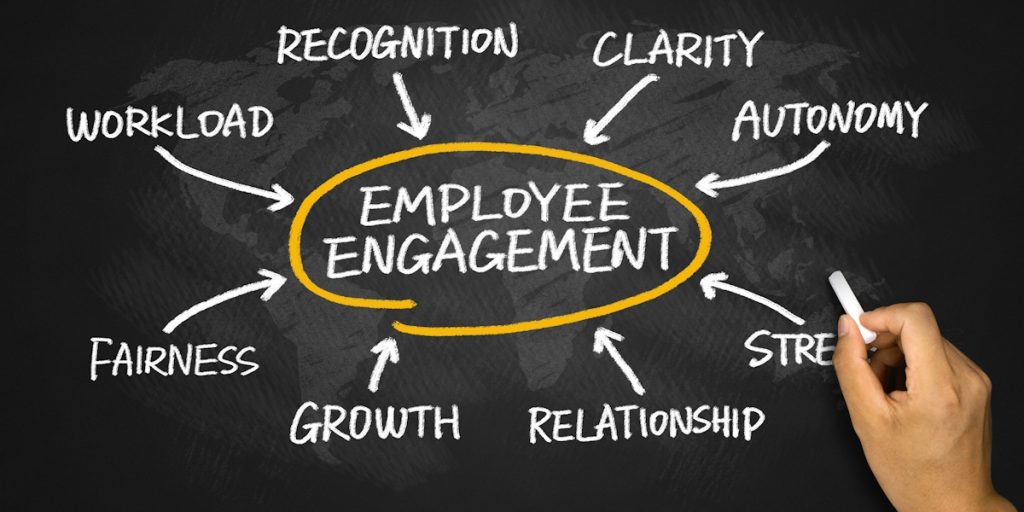Businesses thrive when their employees are engaged, motivated, and performing at their best. One of the most powerful yet often underutilized tools for improving employee productivity and morale is consistent recognition. When employees feel appreciated, their motivation to perform and their overall satisfaction with their job rises significantly. This, in turn, leads to increased efficiency, better workplace culture, and stronger business outcomes. In this blog, we’ll explore how consistent employee recognition impacts productivity and morale, along with practical strategies for businesses to implement effective recognition systems.
The Link Between Employee Recognition and Productivity
A key driver of employee productivity is the feeling of being valued. Recognition directly affects how committed and motivated employees are in their daily tasks. When recognition becomes a regular part of the work culture, employees are more likely to give their best effort consistently.
Increased Focus and Efficiency
When employees are regularly acknowledged for their efforts, they become more engaged in their work. This engagement leads to increased focus and efficiency. Acknowledgment shows employees that their hard work is not going unnoticed, which motivates them to stay dedicated to their tasks. Whether it’s meeting deadlines, exceeding targets, or finding innovative solutions to problems, consistent recognition encourages employees to push their boundaries and take pride in their work.
For example, if a team is publicly recognized for completing a project ahead of schedule, they are more likely to continue performing at a high level because they see that their contributions are important to the company’s success.
Boosting Innovation and Initiative
Regular recognition also fosters a culture of innovation. Employees who feel valued are more likely to take initiative, suggest improvements, and come up with creative ideas. This is especially true when they know that their contributions will be acknowledged. In contrast, when employees don’t receive recognition, they may lose the motivation to go beyond the basic requirements of their role.
How Recognition Improves Employee Morale?
Employee morale refers to the overall satisfaction, outlook, and mental state of employees in the workplace. High morale is essential for a positive and productive environment, while low morale can lead to disengagement, absenteeism, and even higher turnover.
Building a Sense of Belonging
When employees are recognized for their contributions, it enhances their sense of belonging within the organization. Recognition reinforces the idea that each employee’s role is essential to the company’s success, making them feel more connected to their work and colleagues. This sense of belonging boosts morale and encourages employees to remain committed to their roles, resulting in higher job satisfaction.
Stress Reduction and Emotional Support
In a high-pressure work environment, consistent recognition can act as a buffer against stress. When employees feel valued, they are better able to manage challenges and maintain a positive attitude. Recognition serves as emotional support, helping employees feel more secure and appreciated, which reduces stress and anxiety. This leads to improved overall well-being, which has a direct impact on Workplace Morale And Productivity.
Types of Employee Recognition Programs
To maximize the impact of recognition on both employee productivity and morale, it’s important to have a variety of recognition methods in place. Different employees respond to different types of acknowledgment, so a mix of formal and informal recognition is key to keeping everyone motivated.
Formal Recognition Programs
Formal recognition often includes structured programs such as employee of the month awards, bonuses, promotions, and performance reviews. These programs are typically tied to specific goals or achievements and offer tangible rewards for hard work. While formal recognition is important, it shouldn’t be the only method of acknowledgment, as it may not address day-to-day accomplishments.
Examples of formal recognition include:
- Performance bonuses for exceeding goals
- Promotions based on long-term achievements
- Annual awards for standout contributions
Informal Recognition
Informal recognition is more spontaneous and can happen on a day-to-day basis. It might include a quick thank you, a shout-out during a team meeting, or a personalized note of appreciation. This type of recognition is often more immediate and can be incredibly motivating because it’s tied to specific, real-time contributions.
Informal recognition strategies include:
- Sending a personal message or email to acknowledge good work
- Publicly recognizing someone during a meeting
- Praising an employee’s work in front of their peers
Peer-to-Peer Recognition
Another effective way to enhance morale and productivity is through peer-to-peer recognition. This approach allows employees to acknowledge each other’s contributions, building a supportive and collaborative team environment. Peer recognition can be particularly valuable because it shows that recognition doesn’t always have to come from managers; it can also come from colleagues who appreciate each other’s efforts.
Many companies have found success with programs that allow employees to nominate their peers for recognition, whether through a structured process or an informal practice of sharing praise.
The Role of Managers in Employee Recognition
While everyone in the company plays a part in creating a positive work culture, managers have a crucial role in maintaining consistent recognition. When managers prioritize recognition, it becomes a key part of the organizational culture, helping to improve both productivity and morale.
Setting a Positive Example
Managers should lead by example when it comes to recognizing their team members. When employees see their managers consistently offering praise and acknowledgment, they’re more likely to embrace the same behavior. This sets a standard where recognition becomes a normal, expected part of the workplace.
Personalized and Timely Recognition
To be most effective, recognition should be timely and personalized. Delayed or generic recognition loses its impact. Managers should aim to provide feedback as soon as an employee does something worth recognizing. Additionally, recognition should be specific to the employee’s contribution. Instead of simply saying “great job,” a manager might say, “Your detailed work on the client report really stood out and helped us secure the deal.”
Personalized recognition shows that managers are paying attention to the individual efforts of their employees, which deepens the connection and trust between them.
Long-Term Benefits of Consistent Recognition
Beyond the immediate effects on employee productivity and morale, consistent recognition brings numerous long-term advantages to both employees and the organization as a whole. Here’s how this practice can positively influence the future of the workplace:
Strengthened Organizational Commitment
When employees receive regular recognition, they are more likely to develop a strong connection with the company. This sense of loyalty leads to higher retention rates, as employees feel motivated to stay in an environment where their efforts are appreciated. Consistent acknowledgment creates an emotional bond between the employee and the organization, encouraging long-term dedication.
Enhanced Team Collaboration
Over time, consistent recognition helps improve team dynamics by promoting a culture of collaboration and support. Employees who feel appreciated are more likely to engage positively with their coworkers, share ideas, and work together toward shared goals. As mutual appreciation grows, team members become more willing to help one another, leading to smoother workflows and increased group productivity.
Increased Employee Accountability
When recognition becomes a regular part of the workplace, employees feel more responsible for their contributions. Consistent acknowledgment reinforces positive behaviors and encourages employees to take ownership of their work. This heightened sense of accountability leads to a more proactive workforce, where employees strive for excellence and are willing to go the extra mile to meet company objectives.
Fostering Leadership Development
Recognition programs not only benefit employees but also help identify future leaders within the organization. When consistent recognition is part of the company culture, employees with strong performance are more likely to emerge as leaders. These individuals often demonstrate the qualities necessary for management roles, such as initiative, responsibility, and the ability to inspire others. Over time, this can help develop a strong leadership pipeline within the company.
Conclusion
The impact of consistent recognition on employee productivity and morale cannot be overstated. When employees feel appreciated, they are more motivated to perform well, leading to increased productivity. At the same time, regular acknowledgment improves morale, helping employees feel more satisfied, engaged, and connected to their work. Whether through formal programs, informal praise, or peer-to-peer recognition, making appreciation a routine part of the workplace culture pays off in both the short and long term. Organizations that prioritize recognition will not only see better performance from their employees but also build a stronger, more positive work environment.
Want to Boost Employee Productivity and Morale? Customize Your Employee Recognition Program!




